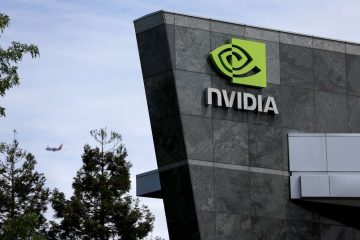What is the valuation of TikTok?

Following President Biden’s enactment of legislation mandating the divestment of TikTok’s U.S. operations, a significant inquiry arises: What is the precise valuation of this widely-used video-sharing application?
The inquirers are faced with significant and greatly divergent figures to contemplate. A potential buyer has proposed a starting price of $20 billion for the U.S. operations. According to sources familiar with the situation, executives at ByteDance, the parent company of TikTok, have previously estimated the global operations of TikTok to be valued at over $100 billion, accounting for around half of the whole value of the Chinese company.
Determining the precise value will be challenging due to the unprecedented nature of this sale in the tech industry and the presence of multiple uncertainties.
One significant determinant is the accompanying assets or benefits that would be included in the sale. Would the scope of analysis encompass the entire global business, including its user base of over one billion, or would it be limited to the operations within the United States, which has a user base of 170 million? Will TikTok’s proprietary video-personalization algorithm, which China has indicated it will not permit to be sold, be included?
There is uncertainty regarding the appeal of TikTok’s U.S. company, as its formerly rapid growth declines and Instagram emerges as a competitor.
The process of determining a sale price, if it even occurs, is expected to take several months or longer. President Biden signed the measure after Congress approved the package in the past several days. TikTok is planning to file a lawsuit based on the principles of free expression in order to prevent the bill from being put into effect. The statute grants ByteDance a maximum of one year to locate an appropriate purchaser or else confront a prohibition in the United States.
Adding to the complexity of a possible sale is the fact that ByteDance’s creator, Zhang Yiming, has the ability to allow TikTok to be banned in the United States, although external investors also have a vote in the matter.
According to the corporation, Zhang possesses a 20% ownership stake in ByteDance, although his voting powers are augmented by super shares. Approximately 60% of ByteDance is held by international institutional investors, such as Carlyle Group, General Atlantic, and Susquehanna International Group. Company employees own the remaining 20%.
Thus far, there have been few public expressions of interest in acquiring TikTok. Kevin O’Leary, the chairman of O’Shares ETFs and a prominent figure on the television show “Shark Tank,” stated that he was assembling an offer to acquire it, with a valuation ranging from $20 billion to $30 billion, excluding the algorithm. The Wall Street Journal has stated that Steven Mnuchin, the former Treasury Secretary, has announced his intention to establish a consortium for the acquisition of TikTok. Additionally, Bobby Kotick, the former CEO of Activision, a prominent video game publisher, has also made contact with Zhang regarding this matter.
If Zhang and other shareholders decide to sell, ByteDance may consider setting a sales price that exceeds $100 billion. According to individuals familiar with the situation, executives at ByteDance stated last year that TikTok could potentially be valued at up to 50% of ByteDance’s overall valuation.
ByteDance refrained from providing any statement regarding their perspective on the valuation of TikTok.
ByteDance, a privately owned company, made a proposal in December to repurchase shares from owners at a price of $160 a share. This offer indicated a valuation of $268 billion, according to sources.
Some investors have the belief that ByteDance has a lower value. According to data from Rainmaker Securities, a private-equity firm, the rates at which ByteDance stockholders sold their shares in private equity markets were below $130 per share. This would result in a valuation of the Chinese technology behemoth at a figure below $215 billion.
There is also no agreement among experts regarding the valuation of TikTok, as it is uncertain whether it is truly worth half of ByteDance, a company that manages other popular applications in China.
According to individuals with knowledge of the situation, several investment banks and investors are estimating the value of TikTok to be five times its earnings from advertising and livestreaming. According to insiders, TikTok generated over $22 billion in revenue last year, primarily from advertising and livestreaming. That implies that TikTok’s estimated worth might reach $110 billion.
These initial assumptions are based on the premise that ByteDance will sell the entirety of TikTok, rather than dividing it into two separate entities: one for the United States and another for the rest of the world.
The United States is TikTok’s largest market and a significant driver of its growth. According to sources, the American company introduced an online commercial service in September and has set a target of achieving $17.5 billion in retail transactions this year.
Last month, the Journal reported that TikTok’s ad-sales targets in the U.S. are being met, however, the expansion of its user base is slowing down. The number of monthly users in the United States, aged 18 to 24, decreased by around 9% between 2022 and 2023, as reported by the mobile analytics company Data.ai. According to Sensor Tower, a data analysis company, the amount of time people spend on Instagram each day increased by 10% in the previous year. In comparison, TikTok only experienced a 1% gain in daily usage. However, TikTok still remains the most popular social media platform in terms of overall time spent on the app.
The profitability of TikTok is uncertain. In a March 2023 interview, Shou Zi Chew, the Chief Executive of TikTok, stated that the company has not yet achieved profitability due to its substantial expenditure in the billions of dollars to separate its U.S. and European businesses from China. This strategic move aims to address concerns raised by politicians and regulators regarding the app’s connections to Beijing.
By selling only the U.S. business, ByteDance would retain the majority ownership of TikTok. However, Chew expressed concerns that this approach might potentially harm the functionality and integrity of the app. According to him, one of the reasons why TikTok is appealing is that it allows individuals from other countries to experience American culture.
According to him, even if you are an American user, it is possible for your content to become extremely popular in France. When considering the operation of two separate companies, one for the United States and one for the rest of the world, it is important to contemplate how they will effectively work together. By what means do you intend to accomplish that task?
Another factor that may decrease the sale price of TikTok is the ownership of the app’s algorithm, which is responsible for customizing the videos that a user sees. China announced in the previous year that the sale of TikTok would require official authorization due to the inclusion of the algorithm, which is regulated by Chinese export-control regulations.
According to investors and corporate officials, ByteDance believes that the algorithm is crucial in making TikTok both addicting and enjoyable. Potential buyers may be required to participate in a bidding process for TikTok, but they may not have access to the algorithm and will need to implement their own system.
In order to transition TikTok from being based in China to being based in the United States, it is necessary for someone to take on the role of a steward. This statement was made by Shark Tank’s O’Leary during an interview on CNBC last month. It is widely believed that the algorithm will not be obtained from the Chinese government, and it is certain that they will not sell it.










